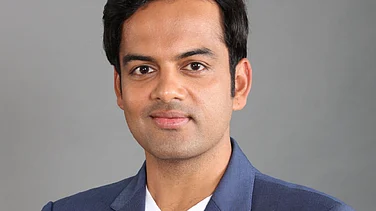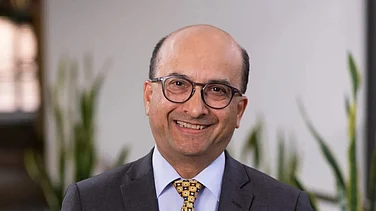Delhi’s Air Quality Index (AQI) hit 171 on Wednesday, October 16th. And we are yet to hit the peak winter season. Generally, an AQI level beyond 50 or above falls in the unsafe zone. In anticipation, the Delhi government has already kick started its 21-point pollution control Winter Action Plan. This Plan includes real-time monitoring of pollution levels across 13 hotspots in the Capital, - this time using drones, a first-time event.
A special task force of six members has been deployed to ensure enforcement of pollution control measures. Measures like artificial rains and vehicle rationing schemes are in the offing if air pollution levels go up further.
To mobilize public participation in controlling air pollution, the government has instituted Harit Ratna, an award to recognise contribution of individuals, NGOs and private companies to mitigate the effects of air pollution. Several state governments have regulatory provisions to impose monetary fines on farmers who indulge in stubble burning.
Outlook Business spoke to Abhishek Sinha, Dean of School of Law, UPES, Dehradun, about the legal frameworks to protect air quality in India. Edited excerpts:
Could you give us some context to India's legal framework around air quality?
The legal framework for protection and improvement of the environment, and for matter connected with it can be traced back to the Environment (Protection) Act, 1986. Subsequently, the Air (Prevention and Control of Pollution) Act of 1981 was enacted to prevent, control, and reduce air pollution in India. The act was amended in 1987. This laid the foundation for air quality regulations. These laws were revolutionary at that time. Air quality today, especially in places like Delhi, where AQI could be as high as 220, or even more, demand newer and stricter measures.
How do you assess recent efforts to control air pollution?
The Winter Action Plan of 2024 is an example of recent efforts. Then there is the ban on production, sale, marketing and distribution of all firecrackers in Delhi till January1, 2025. This has been announced by the Delhi Pollution Control Committee. The ban has been extended to include green firecrackers. In 2018 Supreme Court banned all conventional firecrackers, but allowed the green variant. It is challenging to distinguish them from the conventional ones. I think this is a good decision. There is no reason to accommodate something that is less polluting than the others. If it pollutes, it should be banned.
How well are we managing the major causes of pollution in Delhi?
There are vehicular emissions and stubble burning. This is over and above the pollution each year during Diwali. These are the major culprits for Particulate Matter (PM) 10 and PM 2.5 levels which have serious health impacts. PM 2.5 is particularly dangerous because it penetrates deep into the lungs. The problem is that policies addressing these issues are often ad-hoc. They come into effect when the situation worsens, but there’s no long-term consistency. While the rise in EV numbers might help reduce emissions, the policy approach still feels fragmented. We need consistent efforts from educational institutions, corporates, and governments to create long-term solutions. Moreover, industrial emissions are another factor, often overlooked, that requires stricter monitoring and enforcement.
Is this an issue of having ad-hoc policies, or is there a broader problem related to execution of those policies?
Legal frameworks are there, but implementation is where we falter. Take for example the National Clean Air Programme (NCAP) which aims to reduce air pollution by 2024. The goals are ambitious, but the real risk is in enforcement and execution. Policies are only as good as their implementation, and without proper oversight, we won’t see significant results.
Compare this to other legal frameworks, like the new criminal laws that have been introduced by the government - they have enforcement mechanisms in place. There has been so much effort around creating awareness around this. We need something similar for environmental laws.
What role can international forums play in mitigating air pollution?
It’s good that there are discussions around air pollution on global platforms, such as COP. But each country has unique challenges. India has done well in achieving its Nationally Determined Contributions (NDCs) targets. Controlling of air pollution is approached as an issue of concern only when it is immediate. We address it in a piecemeal way. If air quality is poor in Delhi, we only try to manage that, but what about detoriating quality of air elsewhere?
International platforms do help us make commitments, but unless we have the execution at home, they remain mere statements on paper.
What in your view should be the first step towards effective action on air quality?
The first step is collective responsibility. Laws are important, but they need to be backed by strong enforcement, awareness, and a long-term vision.
We need to focus not just on punishing offenders, but also on educating the masses about the importance of clean air. It’s not enough to react when air quality worsens; we need proactive policies that work across sectors, from education institutions to industry to government. These efforts need to be sustained over time, not just during emergencies.
I would draw your attention to a concept called Gross Environment Product (GEP). This has four pillars air, water, soil and forest. It has a formula to calculate how a State is doing on its environment parameters year-on-year. Such a sustained measurement index helps keep a tab on the environment, rather than discussing it only when it emerges as an emergency.
So, you are suggesting a fundamental shift in the way we approach environmental protection?
We need a fundamental shift in our perception and control of the environment. Legal deterrents are important, but there also needs to be a focus on creating awareness. People need to understand their responsibility - not just the government. We should start enforcing fundamental duties outlined in our Constitution. It’s not just about laws; it’s about creating a mindset where protecting the environment is second nature. We need to scale up our efforts. As citizens we ought to not just be mindful of our rights to breathe clean air, but also our duties to not pollute it.
By individual responsibilities I don’t mean paying another set of taxes to the state for keeping air pollution at bay but being responsible for our part.




























